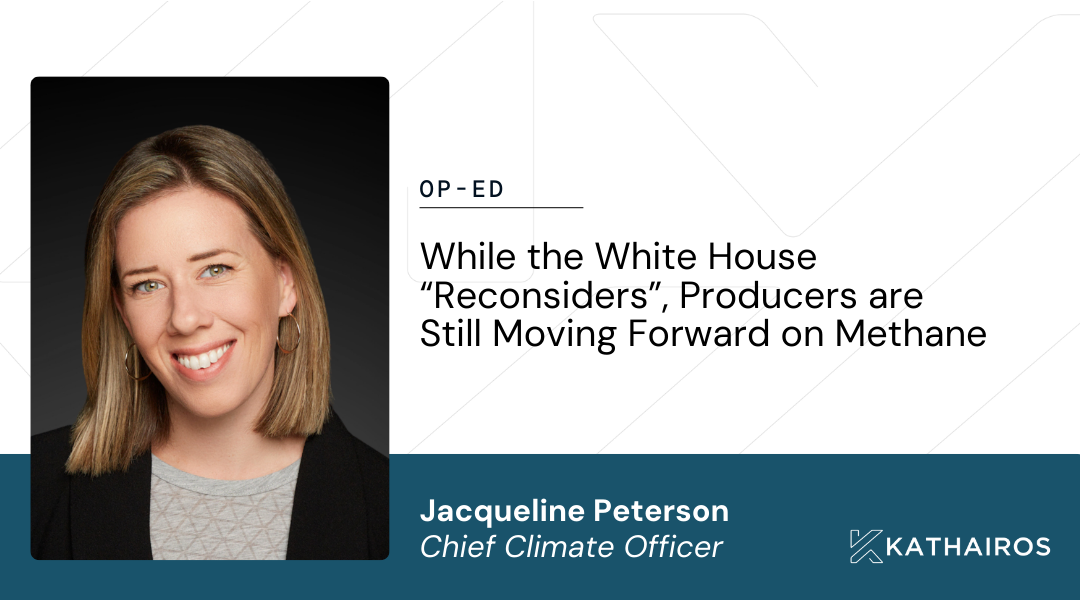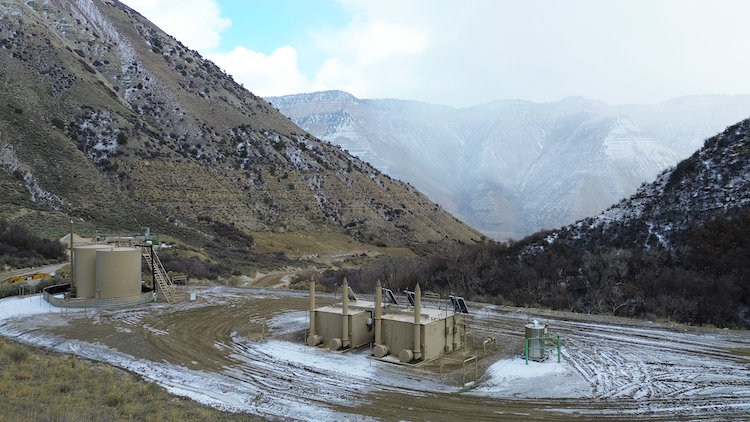
Kathairos has emerged as the leading North American solution for methane elimination from pneumatics, with more than 1,000 systems in operation across North America and over 40 major oil and gas producer partners.
In this post
Global energy leaders met in Paris earlier this week for the International Energy Agency’s (IEA) 2022 Ministerial Meeting, sending a strong message of unity on the need to strengthen energy security, reduce market volatility and accelerate the global energy transition.
Chaired by United States Secretary of Energy Jennifer Granholm, the two-day meeting of energy and climate ministers representing over 40 countries took place amid the severe energy market turmoil and energy security concerns caused by Russia’s unprompted invasion of Ukraine in February.
Ukraine’s Deputy Minister of Energy for European Integration, Yaroslav Demchenkov, attended the meeting in person as a special guest, while Ukrainian Minister of Energy Herman Halushchenko participated virtually in one of the plenary sessions.
A RENEWED VOW
This meeting of major energy decision makers took place just several months after the COP26 Climate Change Conference in Glasgow, where government from around the world revisited their action plans for reducing greenhouse gas emissions leading up to 2030, and even further beyond to 2050.
The International Energy Agency’s 31 member countries noted that the meeting marked “the launch of a new phase”, with a series of new mandates outlining its mission moving forward.
“In addition to ensuring global energy security, the IEA has a new guiding principle: supporting countries in the global effort to attain net zero greenhouse gas emissions in the energy sector by mid-century,” they said in a joint communiqué.
Achieving net zero emissions by 2050 would give the world an even chance of limiting the rise in global temperatures to 1.5 degrees, which is the critical threshold for avoiding catastrophic climate change.
THE MORE, THE MERRIER: A GROWING GLOBAL COALITION
The new IEA mandates cover areas such as ensuring energy security during the energy transition and leading the global energy sector’s fight against climate change, with an emphasis on expanding work on the critical minerals needed for clean energy technologies.
To this end, the IEA received a significant funding boost from governments to enable it to scale up its work supporting the transition to clean energy in emerging economies.
The meeting was also the opportunity to welcome Lithuania as the IEA’s 31st member country. Ministers also announced that Argentina and Egypt are the latest major emerging economies to become IEA association countries, joining Brazil, China, India, Indonesia, Morocco, Singapore, South Africa and Thailand.
THE EMISSIONS MISSION
A special event was dedicated to how to better adapt policy, regulatory and legislative frameworks to accelerate deployment of clean energy and low emissions technologies crucial to meeting international climate targets.
“Along with securing supplies of gas and oil, low emissions technologies are essential to long-term energy security and are the cornerstone of practical emissions reduction strategies,” said Angus Taylor, Australia’s Minister for Industry, Energy and Emissions Reduction and one of the Ministerial Meeting’s three Vice-Chairs. “An acceleration in the deployment of low emissions technology will only be achieved by driving the costs of these technologies down.”
Explore more posts from Kathairos
.jpg)
Decarb Digest, Issue 01: Discover Why Energy Leaders Aren’t Waiting on Washington

Op-Ed: While the White House “reconsiders”, producers are still moving forward on methane

